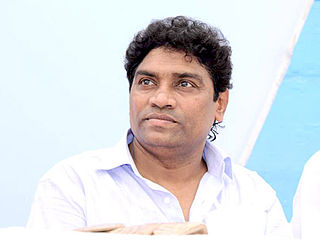A Quote by Raymond Chandler
Everything a writer learns about the art or craft of fiction takes just a little away from his need or desire to write at all. In the end he knows all the tricks and has nothing to say.
Related Quotes
Constant work, constant writing and constant revision. The real writer learns nothing from life. He is more like an oyster or a sponge. What he takes in he takes in normally the way any person takes in experience. But it is what is done with it in his mind, if he is a real writer, that makes his art.
As every writer knows... there is something mysterious about the writer's ability, on any given day, to write. When the juices are flowing, or the writer is 'hot', an invisible wall seems to fall away, and the writer moves easily and surely from one kind of reality to another... Every writer has experienced at least moments of this strange, magical state. Reading student fiction one can spot at once where the power turns on and where it turns off, where the writer writes from 'inspiration' or deep, flowing vision, and where he had to struggle along on mere intellect.
If you want to be a fiction writer, you need to start reading like a fiction writer. To do so, you need to learn about craft so that the next time you pick up a contemporary short story, you're reading it not as an abstraction floating in formaldehyde, existing simply for the theorist's dull scalpel to saw on, but as a concrete thing constructed out of words and shaped by syntax, brought to life by a writer who made several thousand choices, some large, some small, before letting that imperfect beauty, the story, walk on its own two feet.
If you want to be a writer, all you need is a piece of paper and a pencil, and I had a manual typewriter. It doesn't cost money to write. It costs money to make art. So I would just write. I would hand out stories in the classes in high school. And the teacher would say, "Whatever you do, don't become a writer."
Being critical of art is a way of showing art respect. No sports writer would say, "Well the Yankees had a great season this year." No food critic would get a bad meal and say, "Oh, it was so lovely." It always strikes me as odd when people say, "Why do you write negatively about any art?" I think that everybody has mixed feelings about everything - even Goya. I mean, I look at Rembrandt sometimes and I hear a voice in my head go, "It's pretty brown."







































